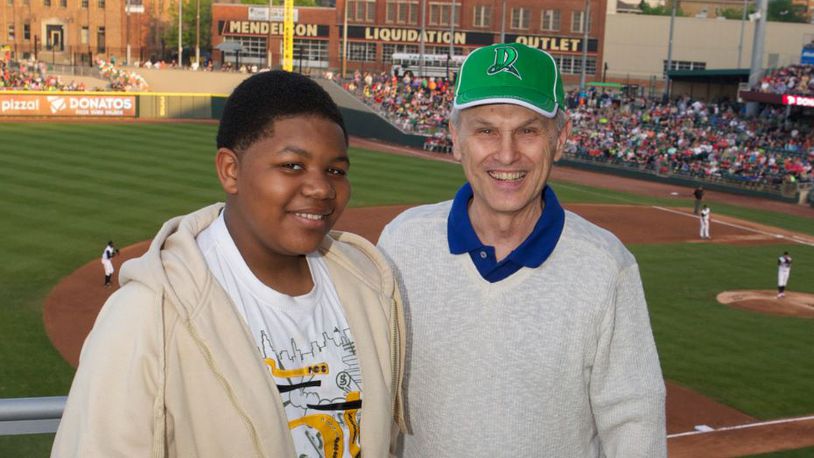Vulnerable boys and girls who build meaningful relationships with adult mentors are more likely to finish school and less likely to get into trouble with drugs, alcohol or violence, experts say.
RELATED: Big Brothers Big Sisters needs school supplies
In search of more male mentors, Big Brothers Big Sisters of the Greater Miami Valley will embark on a campaign that advertises mentoring opportunities in local barbershops. The group also will meet with managers and owners of the businesses to share information about the shortage and how they can help.
“We need to go into the neighborhoods and we need to go where men congregate,” said Anne Pfeiffer, the CEO of Big Brothers Big Sisters of the Greater Miami Valley.
Big Brothers Big Sisters provides children facing adversity with one-on-one relationships from professionally trained mentors.
Most children the agency serves are between the ages of 6 and 18 and live in one-parent households, headed by single women. The agency covers Miami, Preble, Greene and Montgomery counties.
The organization’s “Bigs” serve kids for at least one year, and many of the agency’s mentors work with the “Littles” up until they graduate from high school or turn 21, Pfeiffer said.
RELATED: Local Big Brothers Big Sisters CEO to retire
The organization served 545 children last year, with 545 mentors. The waiting list has decreased slightly from last year, because of successful efforts to recruit Bigs for specific children, Pfeiffer said.
National surveys and research indicate that children with Bigs are 52 percent more likely to stay in school, 46 percent less likely to try illegal drugs and 27 percent less likely to try alcohol, she said.
But one in three children who need a mentor will grow up without one, she said, and more than one-third of the children on the local waiting list have been waiting for longer than 18 months.
The Dayton region has a number of mentoring and volunteering opportunities outside of the Big Brothers Big Sisters program, Pfeiffer said.
“If Big Brothers Big Sisters isn’t the right place, go to Dayton Public Schools’ ‘Men Go Back to School’ — get involved, take action, because you will change a child’s life,” she said.
About the Author
